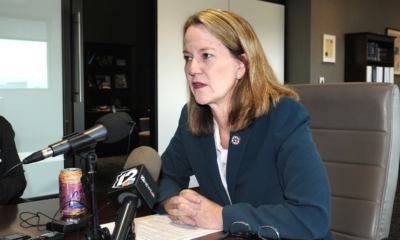2026 budget
AZ Senate Unites on Bipartisan Budget as House Pursues ‘Fantasyland’ Vision

The Republicans leading the Arizona House of Representatives and Senate are racing against the clock to finalize their state budget plans, with a deadline looming in less than two weeks.
This week, Senate Republicans unveiled their budget proposal after extensive negotiations with Democratic Governor Katie Hobbs. In contrast, House Republicans have opted for a separate path, drafting their own plan devoid of input from Hobbs or their Senate counterparts.
Both Republican factions agree on several key priorities: public safety, education, transportation, and water management. However, disparities emerge regarding funding allocations and oversight measures, particularly concerning Medicaid and K-12 education.
Rep. Matt Gress, a primary architect of the House plan, noted its striking similarities to the Senate’s proposal. Yet, critical differences remain, notably in funding priorities that could impact Arizona residents.
Senate Republicans criticized the House for moving ahead with a budget that lacks the governor’s approval and has been labeled a “sham” by Democrats. Senate President Pro Tem T.J. Shope emphasized the need for compromise in a divided government, suggesting that neither party can achieve all their goals.
The Senate’s budget proposes $17.6 billion in spending, slightly exceeding the House’s $17.3 billion. A significant portion of this difference stems from an increase in Medicaid funding, alongside additional resources for K-12 education.
Additionally, the Senate plan features funding for adult education programs, while the House’s budget extends oversight of Arizona’s Medicaid and Supplemental Nutrition Assistance Programs, aiming for more stringent regulations.
Yet, the House budget includes provisions such as oversight enhancements for the school voucher program, which could garner bipartisan support. The plan allocates $2 million for new staff to manage program purchases.
Both proposals allocate funds for projects like the Riggs Road overpass and improvements to Interstate 10, alongside a commitment of $1 million for legal efforts regarding Colorado River water rights.
Notably absent from the Senate’s budget are the House’s controversial restrictions barring state universities from offering scholarships to undocumented students, even if funding originates from private donations.
The Senate Appropriations Committee is scheduled to discuss the budget proposal and receive public input on Tuesday morning. Senators anticipate a vote on their budget package by Wednesday, after which it will be sent to the House for further deliberation.
Senate Appropriations Chairman John Kavanagh reiterated the urgency of moving forward with a viable budget, highlighting the governor’s stance against the House’s version and the risk of a government shutdown.


















